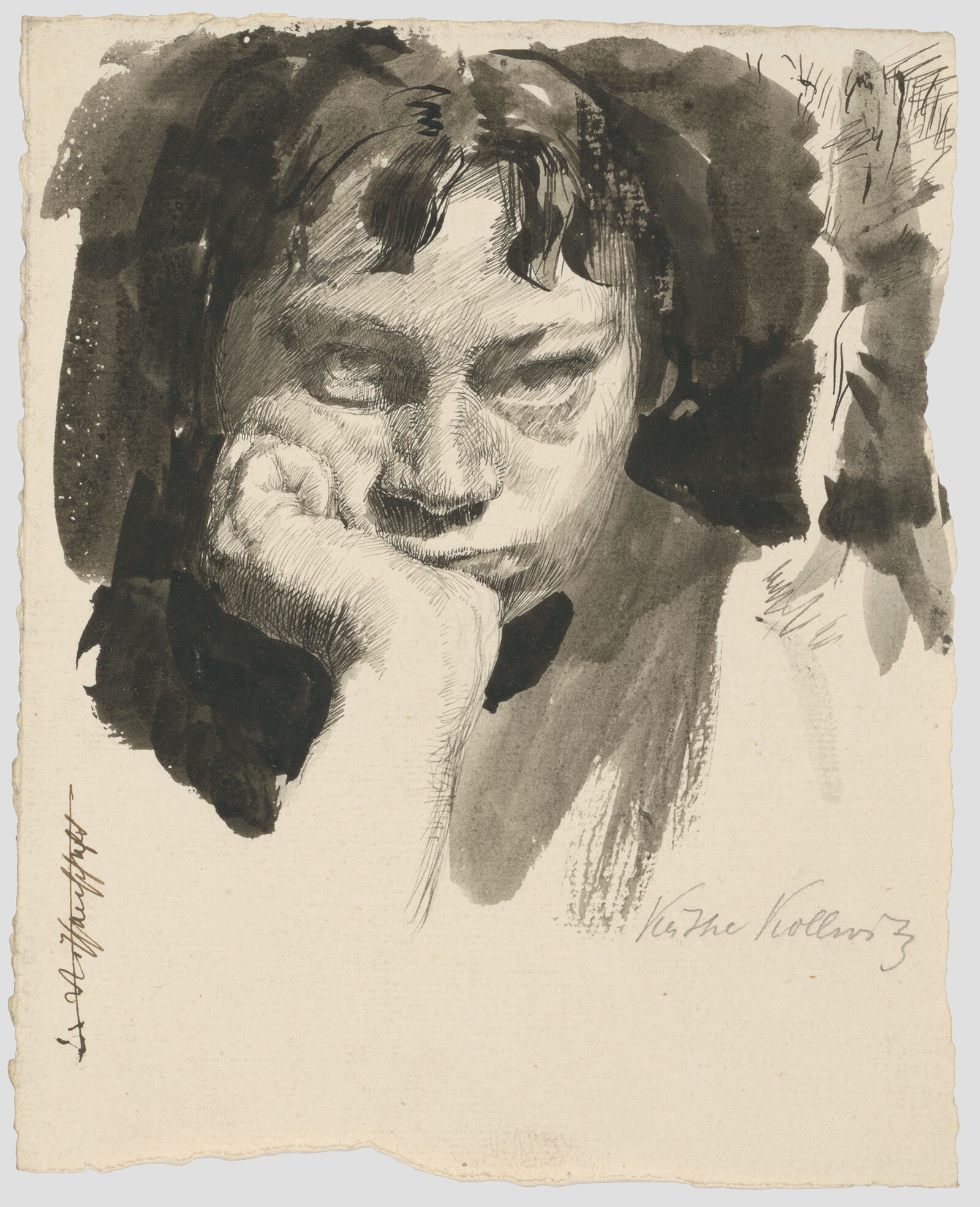March 20–June 9, 2024
Schaumainkai 63
60596 Frankfurt am Main
Germany
T +49 69 605098200
F +49 69 605098111
info@staedelmuseum.de
She was the most famous German woman artist of the twentieth century and nevertheless an exceptional phenomenon: Käthe Kollwitz (1867–1945). The Städel Museum is devoting a major exhibition to her with a focus on the versatility, modernity and explosive power of her oeuvre.
Städel Museum director Philipp Demandt on the exhibition: “Apart from Käthe Kollwitz there is presumably no artist in Germany who attained as early and enduring a career with as much autonomy and determination. Her work made an impact as far afield as the US and China—and was instrumentalized by many isms, both social and political, especially in post-war Germany. It accordingly appears all the more urgent to shed light on the German ‘Kollwitz myth’ and take an in-depth look at the lifework of this prominent woman artist of Classical Modernism. Especially our institution is called upon to undertake such a project: After all, the Städel Museum was already acquiring the art of Käthe Kollwitz during her lifetime, and since the purchase of the Goedeckemeyer Collection by the City of Frankfurt in 1964 has had a well-founded collection, above all of her works in the printmaking medium, to call its own. Awaiting our visitors this spring is an encounter with an artist whose oeuvre has lost nothing of its topicality to this day.”
As an artist, Kollwitz followed paths of her own: She devoted herself not to painting, but above all printmaking and drawing—a decision as bold as it was determined—and there found her way to an independent pictorial language distinguished by incisive immediacy. In the hope of influencing society with her art, she explored existential human questions from a new perspective, also addressing troublesome topics. Not least of all for that reason, the artist and her work were politically instrumentalized in Germany after 1945—a reception still impacting our collective conception of her to this day.
Regina Freyberger, head of the Städel Museum’s Department of Prints and Drawings from 1800 and curator of the exhibition: “It is a huge challenge to remain completely unbiased because, consciously or unconsciously, we always carry our own conceptions and experiences with us. This is especially true with regard to an artist like Kollwitz who—thanks to school and street names, postage stamps and reproductions of her works—has been part of our everyday life for decades. That circumstance can easily obscure the fact that she was one of the most exceptional phenomena of Classical Modernist art. The work of Kollwitz is distinguished by unconventionality, a love for experimentation, and extraordinary persistence. Her refusal to produce art merely for her own sake led to her radical decision to work primarily in the graphic medium. She chose anti-bourgeois and ultimately also political issues and explored them artistically from new angles in an emphatic pictorial language that is today as gripping as ever. Like all great art, her art is timeless and timelessly relevant.”
The complex history of Käthe Kollwitz’s public reception as well as the Städel Museum’s own extensive holdings, enhanced by works from leading museums and private collections, form the point of departure for the exhibition. More than 110 striking works on paper, sculptures, and early paintings by the artist will be on view, including outstanding loans from the Berlin Kupferstichkabinett, the Käthe Kollwitz Museum in Cologne, the Art Institute of Chicago, the Sprengel Museum Hannover, the Staatsgalerie Stuttgart and elsewhere. These works will bear trenchant witness to Kollwitz’s decision in favour of graphic art as well as her nonconformity and love for experimentation. They will reveal the special nature of her themes, her formal vocabulary and her compositional dramaturgy. The show will moreover explore the charged relationship between aesthetics and politics in her oeuvre. Finally, an overview of how the artist was assessed on both sides of the inner-German border after 1945 will serve as a reflection on the power of cultural-political narratives.
Director: Dr Philipp Demandt
Curator: Dr Regina Freyberger (Head of the Department of Prints and Drawings from 1800, Städel Museum)
Press contact: Pamela Rohde (Head of Press and Online Communication): presse [at] staedelmuseum.de / T (+49 69) 605098 170
Press material: newsroom.staedelmuseum.de/en (texts and images for download)



